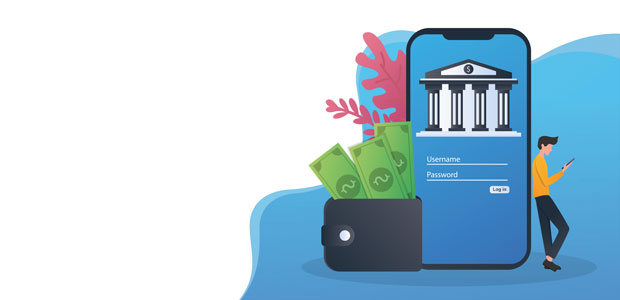
How to increase your online banking security
Over 1.9 billion people around the world use online banking. This means we’re moving towards a cashless society, so you need to ensure your online banking is safe and secure in the long term. Here are our top tips to increase your online banking security.
Use two-factor authentication
Two-factor authentication adds another layer of protection. This makes it harder for scammers to gain access to your accounts. You’ll need to set this up to benefit from it. Start by entering your login details, and then create a second security test. For some banking apps, the second authenticator is a random code generator on your chosen device. It could also include facial recognition or a password.
Avoid using public Wi-Fi
Public Wi-Fi is super convenient, especially if you’re a Brit travelling to Europe who misses having free EU roaming. However, it does put you at risk. If you do need to use public Wi-Fi, avoid using sites that require personal data and bank details.
You should also avoid clicking on links in unfamiliar emails. Always use HTTPS sites, as they tend to have tighter firewalls than non-secure sites.
Change passwords regularly
Hacking passwords is the easiest way for criminals to access your accounts. To avoid being a victim, change your passwords regularly. You should also avoid using personal information. Number sequences are easy to crack, so make all your passwords unique to prevent attacks.
Use random password generators and online password safes. These are simple and effective methods for increasing your online banking security. You should also change your passwords every three to six months. If a data breach happens, change your password immediately.
Consider using a VPN
If you regularly use your online banking app, then use free Chrome VPN install which provides you with an added layer of safety. Because VPNs work by masking your IP address and encrypting code, it’s virtually impossible for scammers to hack them.
Regardless of whether you’re using your home’s Wi-Fi, roaming, or public Wi-Fi, a VPN will give you peace of mind.
Be wary of phishing scams
As we spend more time online, criminals are turning to online crime. The most common type of scam you’ll encounter is a phishing message.
Phishing techniques allow thieves to gain access to personal data and financial information. Typically, phishing scams involve tricking the user into willingly giving up their information.
Most scams involve an email or text message with a link to a site they’ve created. The link will have encrypted malware which downloads when you click it, or the site itself will have the virus attached.
If you suspect you’ve been a victim of a scam, you should contact the National Cyber Security Centre immediately.

